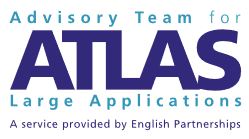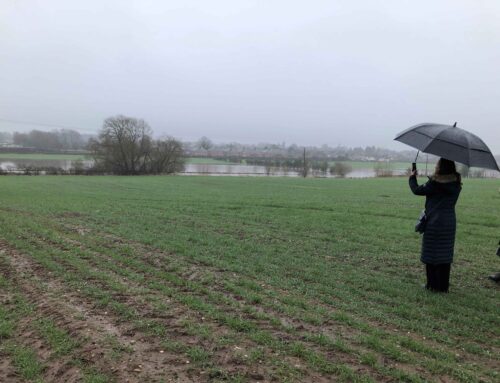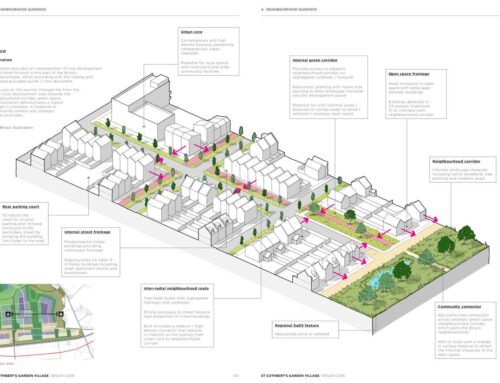 Everyone has taken great interest in Gove’s speech on Monday 24th July, with plenty debate and discussion amongst practitioners about what it means and what impact it may have.
Everyone has taken great interest in Gove’s speech on Monday 24th July, with plenty debate and discussion amongst practitioners about what it means and what impact it may have.
One element that is particularly of interest was the proposal for a new ‘Supersquad’ of planners & built environment specialists – trailed in the press before the announcement as a new “ATLAS 2.0”.
For those not aware, Hyas Associates was created by a few previous members of ATLAS 1.0, so we do know a little bit about this kind of thing. If you are into Greek mythology then you may have worked out where the peculiar ‘Hyas’ name came from (if not take a look here)! We of course are not the only ones with a similar back-story, with many ex-colleagues either staying in Homes England or moving elsewhere to do great things. So even though things ended around 2016/17, a lot of the people involved remain in the sector and learning from the past can help influence the future.
 I must say I’m not overly sure on the new acronym, and still struggling a bit to think it’s origin (‘Action Taskforce for Land Assembly Sites’) hasn’t just come about by someone putting together a set of relevant(ish) words to fit the same letters. Having said that, the original ATLAS was always a bit of a cheat as there wasn’t really an ‘S’ (‘Advisory Team for Large Applications’), and it didn’t only help with applications. It all started within English Partnerships – you can see the team’s original remit here.
I must say I’m not overly sure on the new acronym, and still struggling a bit to think it’s origin (‘Action Taskforce for Land Assembly Sites’) hasn’t just come about by someone putting together a set of relevant(ish) words to fit the same letters. Having said that, the original ATLAS was always a bit of a cheat as there wasn’t really an ‘S’ (‘Advisory Team for Large Applications’), and it didn’t only help with applications. It all started within English Partnerships – you can see the team’s original remit here.
What can we learn from the past
So what of ATLAS 2.0 and how does it relate to what was done before. Well firstly, there’s not much information to go by and we have no greater insight than others so can only comment on what has been said so far. Assuming the acronym is correct, and as the speech on Monday referenced the deployment of the team first in Cambridge and then across the Investment Zones, maybe it will be something quite different to the previous iteration. It may be more commercial, take an active role in land acquisition or via CPO and bring sites through to direct delivery. So perhaps its actually less about planning, and not that likely to be involved in the larger urban extensions, garden communities and new settlement proposals all across the country. If it is an update version of what was done previously then FWIW here are a couple personal thoughts on what may help make the initiative work best:
- Starting with a clear vision and purpose. This can always be a bit of a difficult line to walk, especially if the service is fundamentally being set up and monitored against achieving housing numbers/starts. The original ATLAS monitored performance not only on the quantitative numbers but also on qualitative aspects including whether the team added wider value to the work of other stakeholders, for example its role to create quality places and build capacity in Local Authorities so they could become more resilient and deliver on local ambitions. Being recognized to be there to deliver quality and not just quantity is important.
- Having the right type of people. I’m sure we’ve all come across the rather annoying type of ‘expert’, who can rock up, spout their wisdom, not be that keen on listening to other perspectives or appreciating local context & feelings. That may work in some circumstances, but generally its far better to build trust and positive relationships – working to shared endeavors, understanding different perspectives (political and commercial) and being able to add real value.
- Being able to both advise and help implement that advice. The original ATLAS had a bit of a challenge in that whilst it could help to work alongside the public and private sectors to share knowledge and give advice, it was sometimes more difficult to provide the wider help needed to then put things into practice. Inevitably that implementation stage needed people and/or resources to do what was necessary, and not all places had that available. Sounds like it may be different this time, with a bigger budget attached than ATLAS 1.0 ever had.
 Results don’t come quickly. We all know that bringing strategic growth proposals through planning takes time. Often the most valuable part of the process is setting robust foundations, be it through initial visioning and policy making, helping create a shared ambition for the future. That can give the overall planning process a far better chance to deliver things more effectively and efficiently. Achieving positive outcomes was always much more difficult when support is brought in late on. No matter how expert the people involved are, issues and blockages are seldom easy to quickly deal with.
Results don’t come quickly. We all know that bringing strategic growth proposals through planning takes time. Often the most valuable part of the process is setting robust foundations, be it through initial visioning and policy making, helping create a shared ambition for the future. That can give the overall planning process a far better chance to deliver things more effectively and efficiently. Achieving positive outcomes was always much more difficult when support is brought in late on. No matter how expert the people involved are, issues and blockages are seldom easy to quickly deal with.- Having a degree of operational independence. This can be a particular challenge and care is needed where such a team is hosted. ATLAS worked well by being able to get on with its job without too much corporate interference. Arguably the demise of the original team was more down to issues of overall resourcing and remit of the host entity (at that time the Homes & Communities Agency). The need for the service never changed. With wider funding constraints it’s not surprising the host entity had to make choices as to how best to deploy the people it was employing. Everything has a shelf-life, but having the right ‘fit’ with any host entity is important.
- Going where you’re wanted! This is probably the most important of them all. The original team worked well because it worked with and alongside willing Local Authority partners, and developers who often recognized the value that additional knowledge & experience could bring. Success was derived by working positively through collaboration – working to shared objectives to get the best outcomes for everyone. It most certainly would not have worked by being some central team of outsiders being imposed on a place, running roughshod over local democracy and accountability.
What has been said so far
It’s been quoted that the new team would have funding of £13.5m. We don’t know what this is or means, what timescale it’s over, whether its new or reallocated resources. At face value things look a bit imbalanced – with Councils able to access £100k via the Planning Skills Delivery Fund, but this Supersquad having £13.5m at its disposal. Let’s hope that where the support is provided, it’s done in a way that enables Councils to have a real say and enough control in defining what they need and how best to get it.
The first place mentioned to receive the support (Cambridge) hasn’t exactly reacted well to Monday’s proposals, so be interesting to see how that plays out. The Councils are already cracking on with current and future strategic proposals, albeit at an Officer level they will undoubtedly suffer similar struggles to elsewhere with capacity & resourcing constraints. I’m sure help and funding is to be welcomed, but not if it comes as part of a predetermined approach or objective, or takes the form of a set of new & external experts that are forced upon somewhere.
And we don’t yet know who and where is this Supersquad? Whilst ATLAS 1.0 may have been quietly disbanded, Homes England never actually ended supporting at a local level, with various ‘planning & enabling’ activities, a Local Government Capacity Centre, support for Garden Communities and many other useful endeavours. Is the money being used to move things about a bit or is it additional to what may have already been on offer? Is it a budget to go out and pay for a set of consultants? Will it be via the usual suspect names on pre-existing panels, or can it accommodate SMEs and sole practitioners who may be more appropriate locally to places? Is this all to be controlled and managed by Homes England, or maybe the Planning Advisory Service, or put into the Office for Place? Wherever it sits, care will be needed to make sure the same corporate influences don’t end up defining how it operates or hindering the true value it could bring.
So lots of questions, but room for optimism too. We most certainly hope the initiative will be successful and adds real value to a sector so in need of all the help it can get. We all await further details with interest. And of course if ATLAS 2.0 isn’t for you, feel free to give us a call to see if our ‘Supersquad’ can help!





